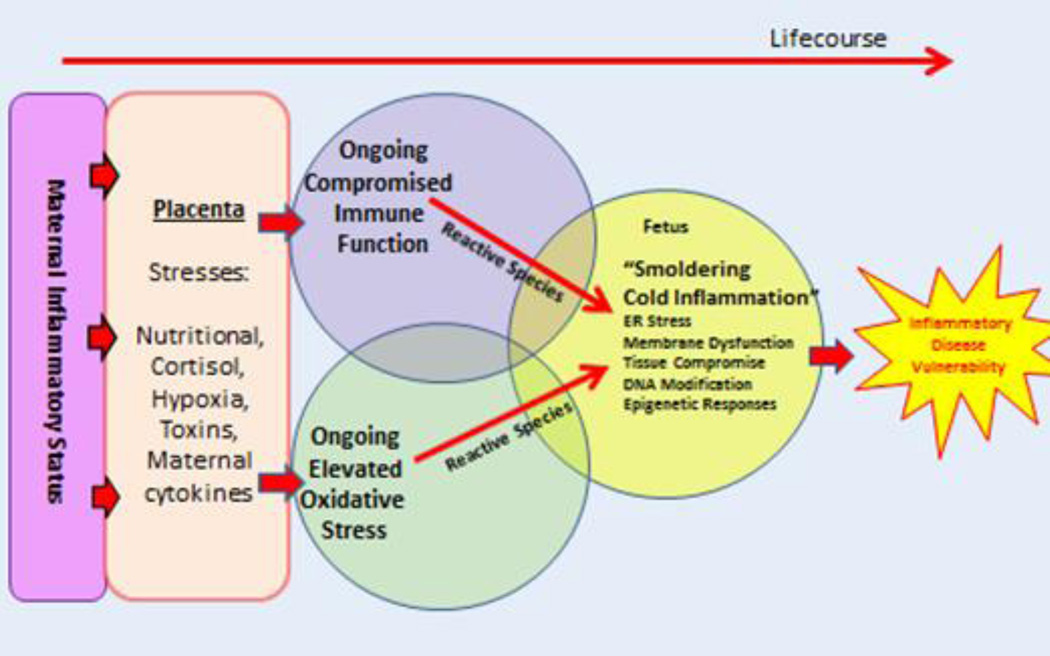Figure 2.
The primary elements that lead to a pro-inflammatory state in both fetal and postnatal life. Beginning left, pro-inflammatory molecules affect placental inflammatory gene expression depending on the physiological status of the mother. A pro-inflammatory placenta leads to compromised immune function in the fetus along with elevated levels of oxidative stress. The outcome is a fetus that suffers “smoldering, cold inflammation” that may persist and make it more likely that the offspring will be more vulnerable for adult-onset chronic disease.

